Documentary (Against the Law)
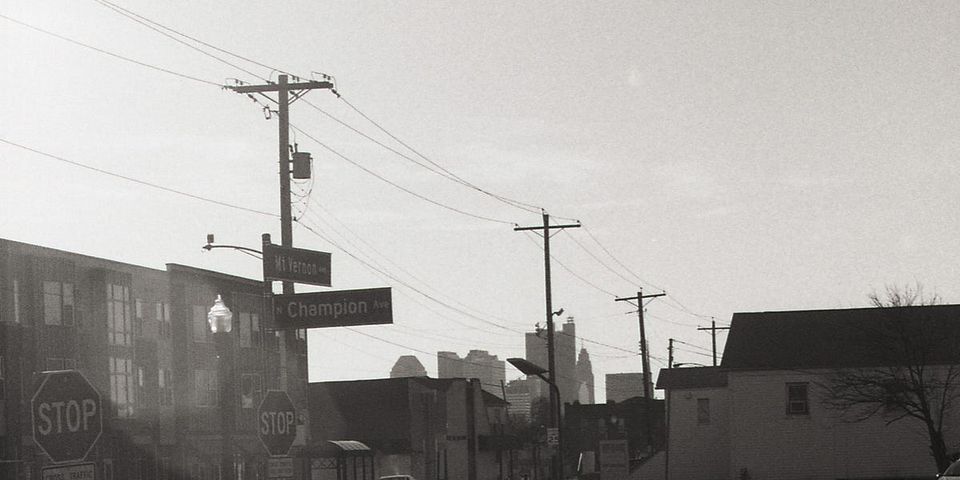
This is Friday Letters, an AGAINST THE LAW edition.
I’m refreshing the newsletter in the middle of writing my new book, A WOMAN IS AGAINST THE LAW, because I always wanted to have a place to talk about doing the work even as I have to wait a little while yet to show you the work.
This week’s letter is not only about the book, but about what making my first documentary film, THEY WON’T CALL IT MURDER, alongside developing the book has meant for how I write and how I work differently now.
It was just after Easter in New Orleans and the amount of travel going on just that one month feels almost excessive now: Columbus for what became the start of a murder trial; home for a few days and then up to Bard College with Blunt to give a talk on the work that Hacking//Hustling had been doing in the year since SESTA/FOSTA had passed; and then to Louisiana, with the mandate to get serious about how I was going to merge the reporting I had been doing with the big, sweeping historical story I had been carrying around in my notebooks and (being honest) in my head for some years. I was in a car driving through the French Quarter and heading back to the Bywater when I checked my phone and got halfway to an answer.
The email I got that day would culminate, two years later, in the first film I would make, with co-director Ingrid Raphaël, its origins in the news of that murder trial. We wrote about it for Talkhouse this week to mark the release of the film, THEY WON’T CALL IT MURDER:
Columbus, Ohio, is a driving city, but most of the main government buildings – where prosecutors and police officials work, and where people protest – are within a short walk of one another. Its criminal court rooms are like a lot of other ones in the U.S.: cameras only show up when there’s someone on trial who has already made headlines. By the time Melissa was in one of those courtrooms, she had already been following the story unfolding there for nine months: for the first time in 20 years, a Columbus police officer was charged with murder after killing a community member while on duty.
The story the two of us collaborated to tell would not dwell on the spectacle in the courtroom. We came from different backgrounds – Melissa is a journalist and author and Ingrid a filmmaker and multidisciplinary artist – but each wanted to show the human impact of police violence in the day-to-day life of Columbus. We were more interested in what was left behind, left out: the family’s subjective experiences. After Columbus police had killed mostly young Black men without facing criminal penalties for decades, a Black officer who killed a young white woman was now on trial. What did this mean for the family of the victim, Donna Dalton? And did it make a difference for the families of so many other victims – like Henry Green and Tyre King, both killed in the summer of 2018 – who felt they never got justice? In truth, much had stayed the same.
If you haven’t seen the film, you can watch it free online now.
Production was done (so we thought) in February 2020 which was an accident of scheduling, not a premonition. I remember sitting in bed in the house we rented in Columbus each time we went out to shoot, seeing some initial reports about the virus. Ingrid and I would finish THEY WON’T CALL IT MURDER entirely remotely—putting together a post team we would not meet for months, co-writing the script in Google Docs while hanging out on video chat. Then came the uprisings that summer. We started shooting again, Ingrid in the streets in Columbus following protestors and filming and sending me updates on Signal back in Brooklyn, where I was co-ordinating with our team at Field of Vision and their legal support (and sourcing gas masks and/or N95s—there were no vaccines yet). For both of us, this was our first documentary film. We hadn’t done something like this any other way: in the midst of a pandemic, an uprising, an insurrection. We wouldn’t even see each other in the same room again until we brought the film back to Columbus in October 2021, and got to share it with all the families we had met and had been part of this.

Year one of Covid bled into year two of the film and the whole time I was at work on what would become A WOMAN IS AGAINST THE LAW. I sold the book in April 2021; we finished TWCIM in May 2021. In a way the two share a history, though writing AGAINST didn’t really begin until August 2021. That meant I came into it after two years of translating what I knew about how to tell a story into something completely new.
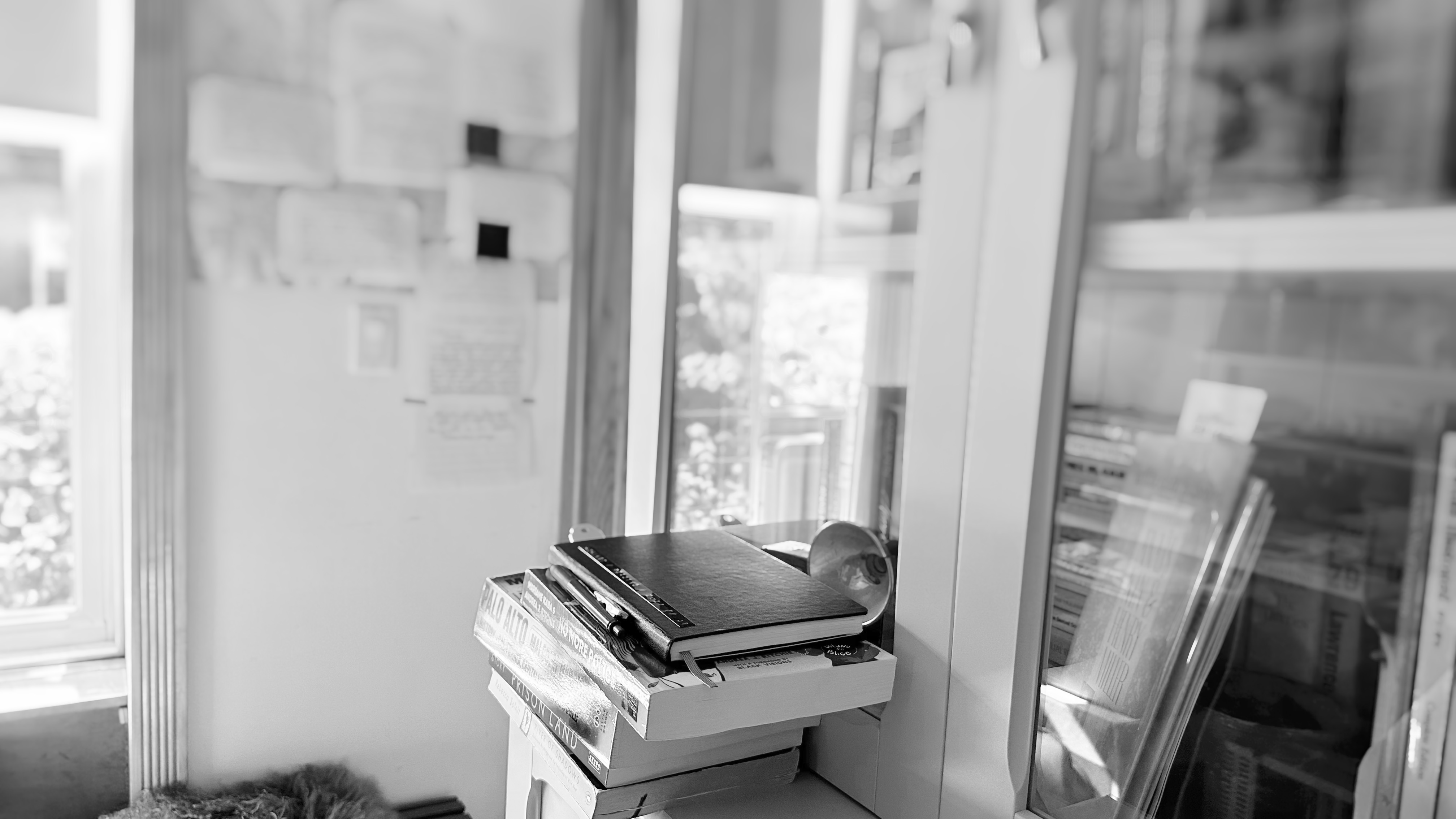
More than shooting and interviewing, the editing process changed how I write. Journalism already had once before—it did not feel natural to me, at first, to spend so much time researching and interviewing before I ever attempted what I once thought writing was about: good writing. I’ve already learned that for anything more than a blog post, I have to outline first, and I can’t outline I, II, II on paper. Instead, everything in my notebook and every piece of tape ends up in a spreadsheet, tagged with a theme or vibe (the investigative journalist who taught this method at IRE shared that when she was done reporting, she could just sort her spreadsheet by theme and have an outline; I tend not to be so linear). Before I started editing the film, I already knew this about myself: that despite nominally being a writer, I have to think through structure visually and largely without prettily ordered words, and I need to keep it in my face and add and subtract from it as I go. I have to live with it.
Then, when I saw this bit of Walter Murch’s edit setup, it felt already felt familiar:
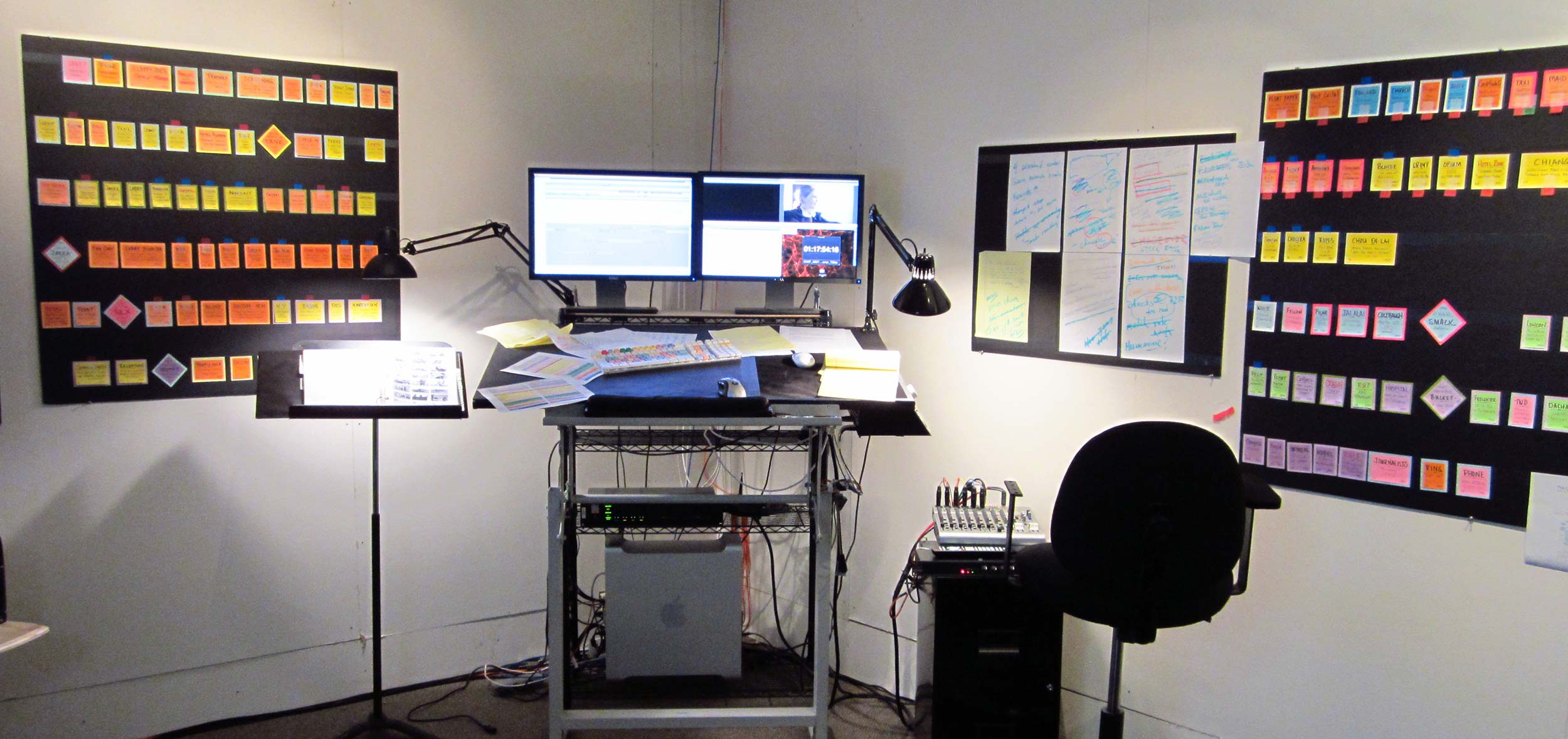
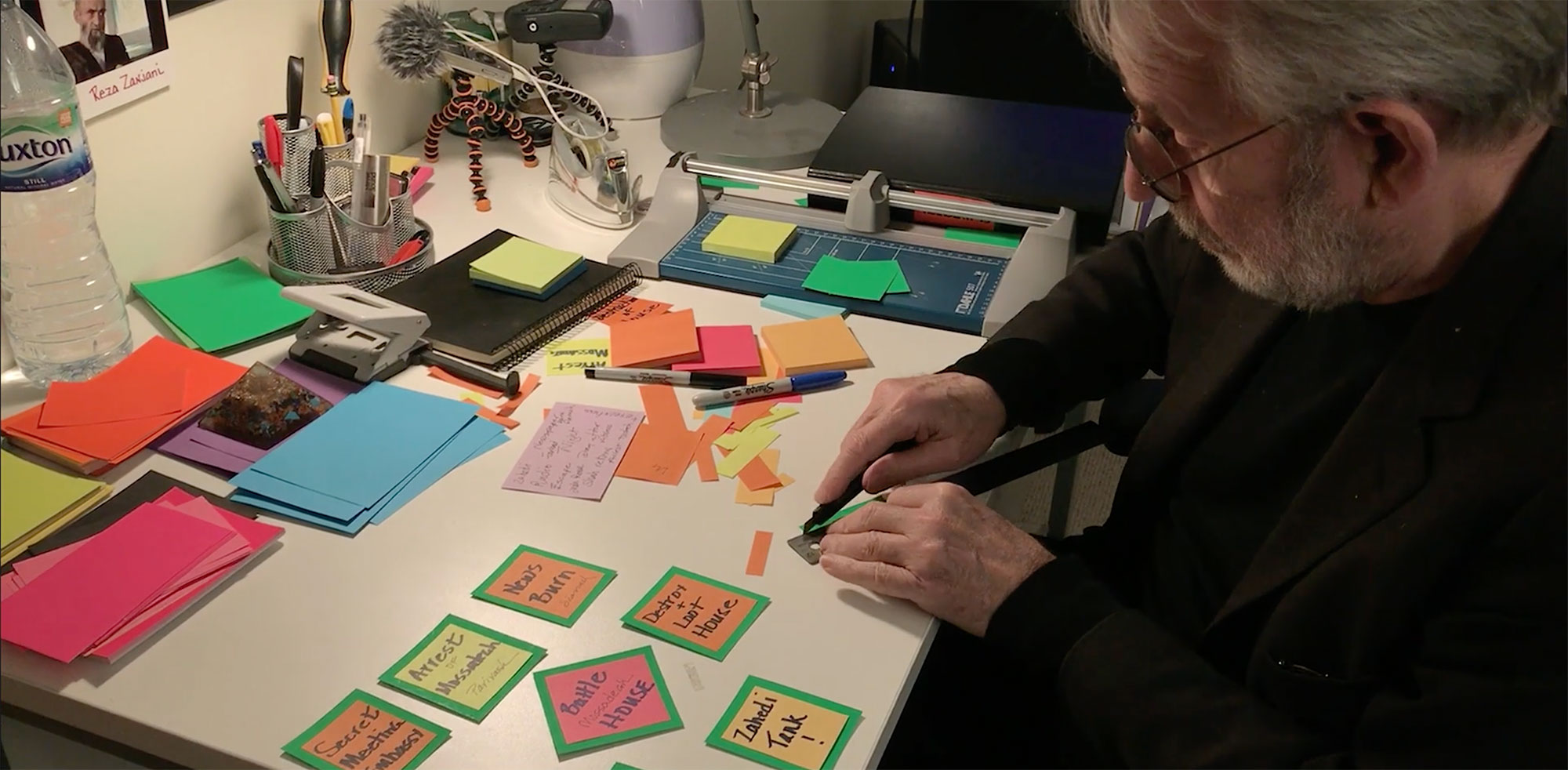
I stole this wholesale for THEY WON’T CALL IT MURDER (a much more quick-and-dirty version, since it was a short) back before Ingrid and I brought on an editor, when we were still wrapping our heads around the footage, before there was a script.
One board was laying out the emotional beats, in order to spot and track themes. Another told each of our four stories chronologically. A third let us combine and recombine the first two boards, interweaving timelines. The final film largely reflects that: we meet each of the four families and each walks us through their story in a roughly chronological way, but then there’s a big visual and stylistic break as we get into their commonalties, intercutting them, layering voices on top of one another, until we see—and we didn’t know we would get to see—everyone again, this time in the streets.
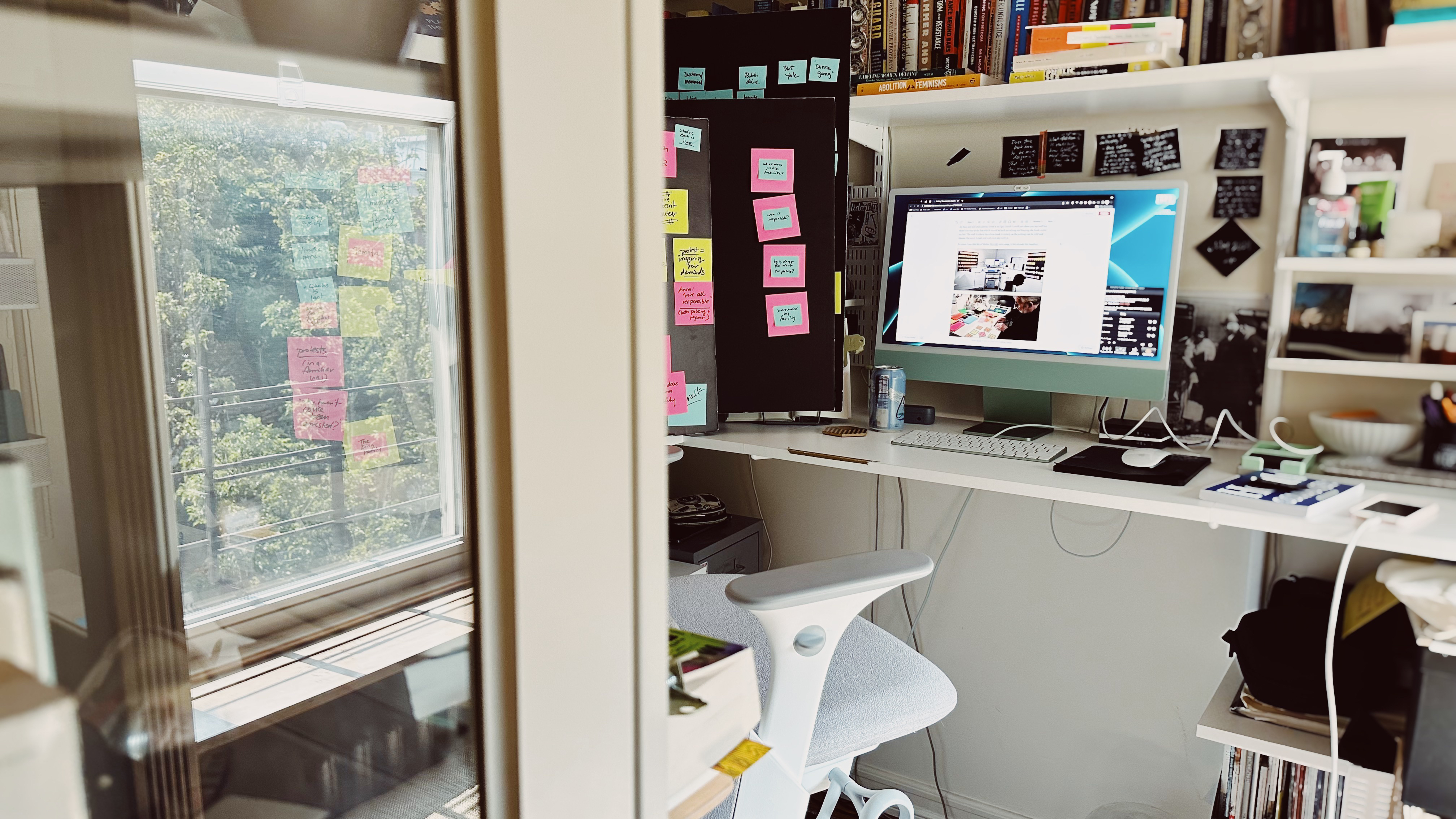
In retrospect, that whole process of reporting out something over months, of finding its throughline and building it up and testing it and rebuilding, before getting too worried about making it pretty, that already felt more like making a documentary than, say, writing a nonfiction essay. If the short was analogous to a piece of journalism, it was a feature. The book? It feels more like a documentary series. The boards/wall lets me give some attention to those moments I know have to go in, but it lets me let go of figuring out how to write them until I have some idea about how I would get in and out of the moment. Everything moves the thing along or it gets saved for something else.
I wish I could just show you my wall! The wall is where the whole book is orderly so the writing can be wild and chaotic (for now). It’s covered in multi-colored post-it’s, for characters, locations, story beats. I pull notes off and recombine the best parts and save the old notes for other things. The wall gets boiled down and down until one chapter fits on each note.

That’s where I’m at now, a year and change in to writing. That’s where I start and end every day.
FROM THE PLAYLIST //
As of this writing, the book’s playlist is five years old and clocks in at 6 hr 32 min. This week: “The Underside of Power,” by Algiers. I got to see them right before Covid hit, and I still remember being up late and listening to this whole record while editing the doc. I can’t believe this came out in 2017.
STATION IDENTIFICATION //
This is Friday Letters, by Melissa Gira Grant (me), back on Fridays again.
Subscribe now, if you haven’t already, and thanks for reading.
x
MGG
Each subscriber builds the operating fund that will ensure the independence of this newsletter from any platform. Thanks to all of the subscribers who have been here from the start.

Member discussion